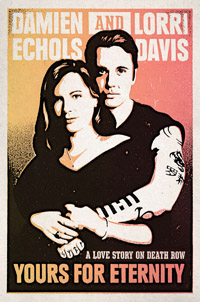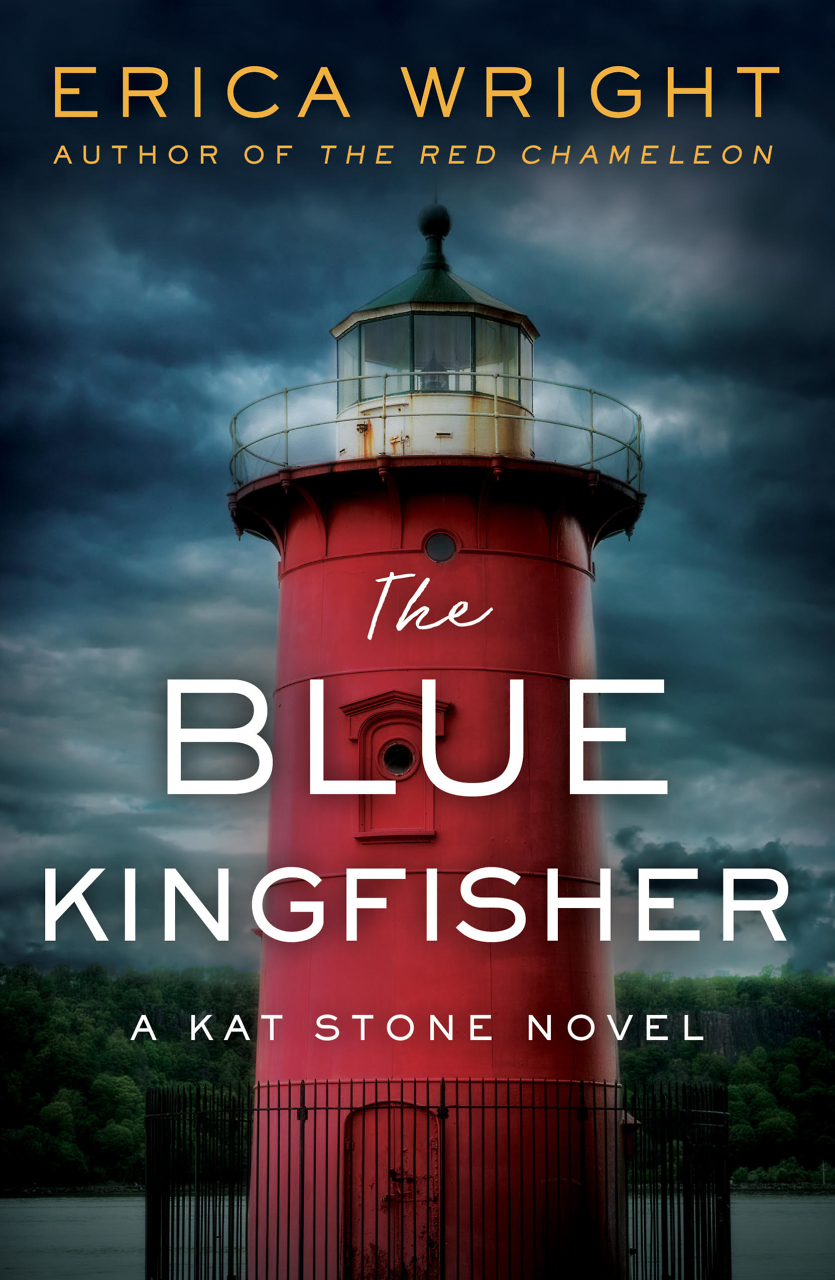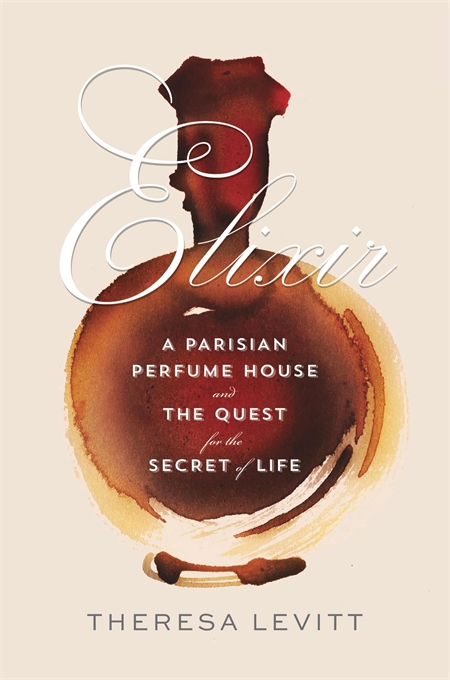Against All Odds
A new epistolary memoir captures the love story of former death-row inmate Damien Echols and his wife, Lorri Davis
In 1996, Lorri Davis lived in Brooklyn and worked as a landscape architect. She’d moved to New York City alone, having very little money, because it was the hardest thing she could think to do, she writes in Yours for Eternity: A Love Story on Death Row. In a choice between doing things the easy way and doing them the hard way, Davis typically does things in the hardest possible way—falling in love with a man on death row, for example. To create their new epistolary memoir, Davis and her husband, Damien Echols, revisited the thousands of letters they exchanged between 1996 and 2011 while Echols was imprisoned as one of the “West Memphis Three.”
 Davis first wrote to Echols after attending a Museum of Modern Art screening of Paradise Lost, the first of several documentaries about the 1993 Arkansas trial of Echols and two other teenagers who were wrongfully convicted of murdering three young boys. The prosecution had no physical evidence linking the West Memphis Three with the deaths, and many outside rural Arkansas were shocked by the convictions. With no solid leads and under pressure to solve the brutal murders, local police had simply honed in on Echols because he was “a troubled yet gifted eighteen-year-old who wore all black, listened to heavy metal music and considered himself a Wiccan,” according to The New York Times. After seeing the film, Davis felt compelled to write Echols and offer help. Thus began a correspondence that would alter both of their lives.
Davis first wrote to Echols after attending a Museum of Modern Art screening of Paradise Lost, the first of several documentaries about the 1993 Arkansas trial of Echols and two other teenagers who were wrongfully convicted of murdering three young boys. The prosecution had no physical evidence linking the West Memphis Three with the deaths, and many outside rural Arkansas were shocked by the convictions. With no solid leads and under pressure to solve the brutal murders, local police had simply honed in on Echols because he was “a troubled yet gifted eighteen-year-old who wore all black, listened to heavy metal music and considered himself a Wiccan,” according to The New York Times. After seeing the film, Davis felt compelled to write Echols and offer help. Thus began a correspondence that would alter both of their lives.
“I hope it doesn’t freak you out to have someone that you don’t even know mooning over you so much,” wrote Davis in one of her early letters to Echols, ten years her junior. “Something has brought you into my life, and as daunting as it is to me sometimes I know it is a good thing.” For his part, Echols was spending twenty-two hours a day inside a maximum-security cell, rarely opting to go outside even during the two hours he was allowed: “[W]hen you go out, you just stand in a fenced square like a dog kennel and bake in the sun,” he wrote to Davis. Instead, he spent most waking hours reading.
In one of the postscripts inserted between chunks of letters, which are organized by date, Echols notes how little he actually shared with Davis about the torture he endured. Even as they fell in love, writing each other five or six letters a day, his missives were “completely void of the beatings, the starvation, and the psychological trauma” he suffered in prison. His hardships, he explains, “had no place in the world we were creating together,” and he “didn’t want Lorri to have to carry the burden.”
 In Life After Death, his bestselling 2012 autobiography, Echols laid bare in stunning prose the details of his experiences on death row. His letters to Davis in Yours for Eternity are also deeply honest, but they are written to one specific person, the woman he loved. His letters are by turns profane, playful, profound, and protective. Shy by nature, Davis was so reluctant to mail Echols a photo of herself that the two fell in love before he knew what she looked like.
In Life After Death, his bestselling 2012 autobiography, Echols laid bare in stunning prose the details of his experiences on death row. His letters to Davis in Yours for Eternity are also deeply honest, but they are written to one specific person, the woman he loved. His letters are by turns profane, playful, profound, and protective. Shy by nature, Davis was so reluctant to mail Echols a photo of herself that the two fell in love before he knew what she looked like.
“If nothing saves us from death,” wrote Chilean poet Pablo Neruda, “may love at least save us from life.” That sentiment speaks to the nature of the correspondence between Echols and Davis: they detailed everything—childhood memories, quotidian facts, quirky observations, opinions about books and music, and their frantic longing for one another. They wrote, in other words, as if their letters might save their shared life.
Davis ultimately moved to Arkansas and devoted herself full-time to Echols’s appeal, and the final third of Yours for Eternity centers on her calls for a new trial, fundraising to pay his lawyers, and efforts to gain publicity for their cause. Paradise Lost had gained a cult following that included celebrities such as actor Johnny Depp, rocker Eddie Vedder, and director Peter Jackson, but Echols was freed largely as a result of Davis’s tenacious pursuit of his release and her willingness to speak for Echols in publicizing the unjust verdict and tangled legal system that paralyzed their lives. From Los Angeles to New York, people who learned about the case charged police to look again for evidence that would uncover the real murderer. Supporters demanded that Echols and his two friends, all of whom had alibis at the time of the crime, be exonerated.
In 2011, the men were released following an Alford plea, which required them to admit to the crime in exchange for their liberty after eighteen years behind bars. After more than fourteen years together—twelve of them as husband and wife—Davis and Echols were finally allowed to consummate their marriage and share a home.
Davis had always believed that something extraordinary was going to happen to her—“something quiet and magical, behind the scenes, but very powerful,” she wrote to Echols in the first year of their correspondence. “I’ve always felt that. I’m wondering and beginning to believe it has something to do with you.” Even then, almost a decade and half before they would embark on a life together, she wrote, “I can’t wait to see what’s in store for us—it’s sitting inside me like a small growing seed—it’s quite marvelous—although sometimes a little uncomfortable.”
The love story that unfolds on these pages does evoke occasional discomfort. Despite knowing from the book’s outset that Echols is now free, it’s difficult to read about the couple’s private pain as their relationship moved from friendly to infatuated, from romance into commitment beyond all logic. Even to Davis, it seems unfathomable that their love could withstand fourteen years of separation. At the same time, these letters make it clear how this couple’s dedication to one another, and their writing, kept them from giving up or losing their minds. The letters offered Echols and Davis purpose, structure, and hope—and in the end saved their lives. She was lost; he was sentenced to die. Still, they managed to set each other free.

Sarah Norris holds an M.F.A. in creative nonfiction from Sarah Lawrence College and has reviewed books for The Daily Beast, Christian Science Monitor, San Francisco Chronicle, and Village Voice, among other publications. She lives in Nashville.


